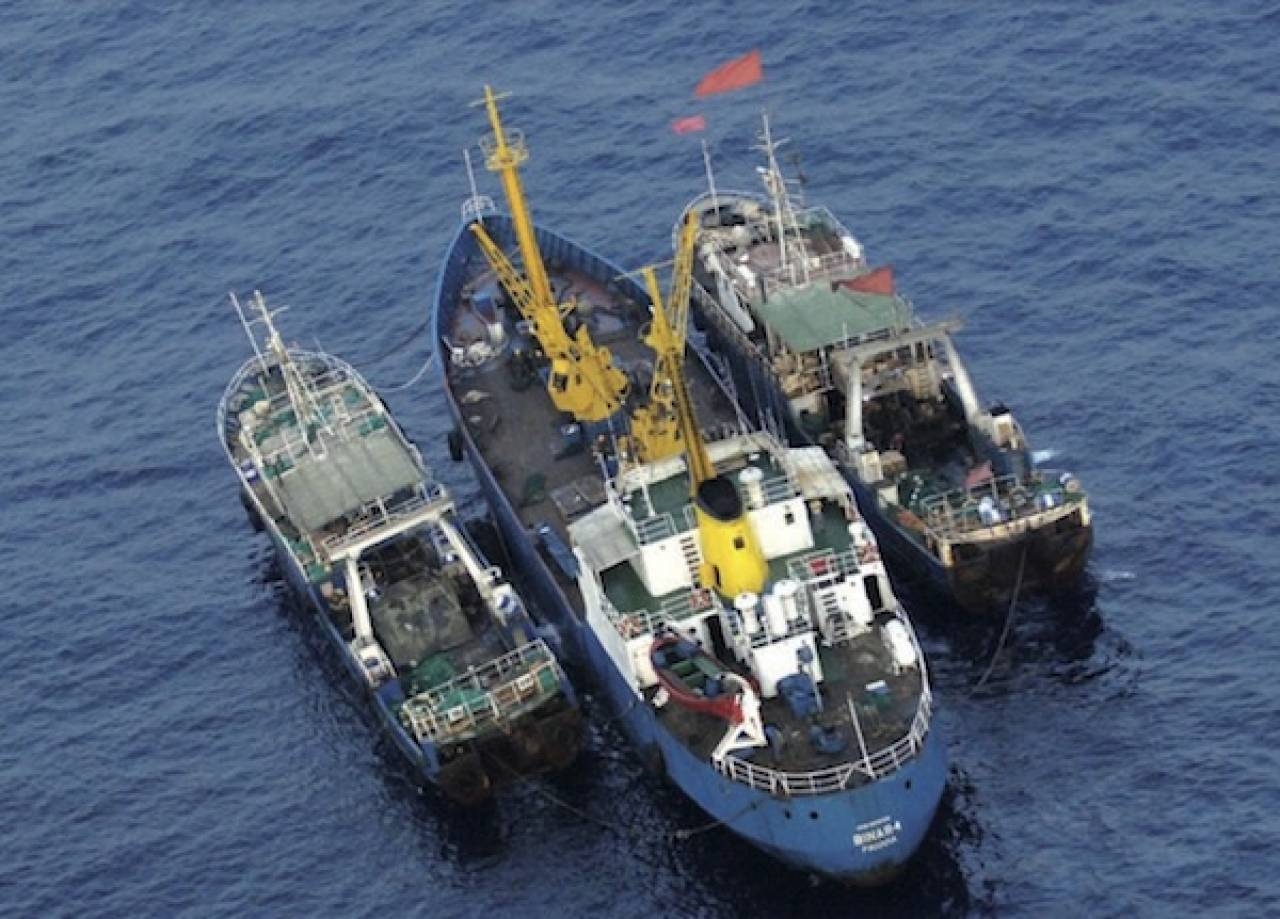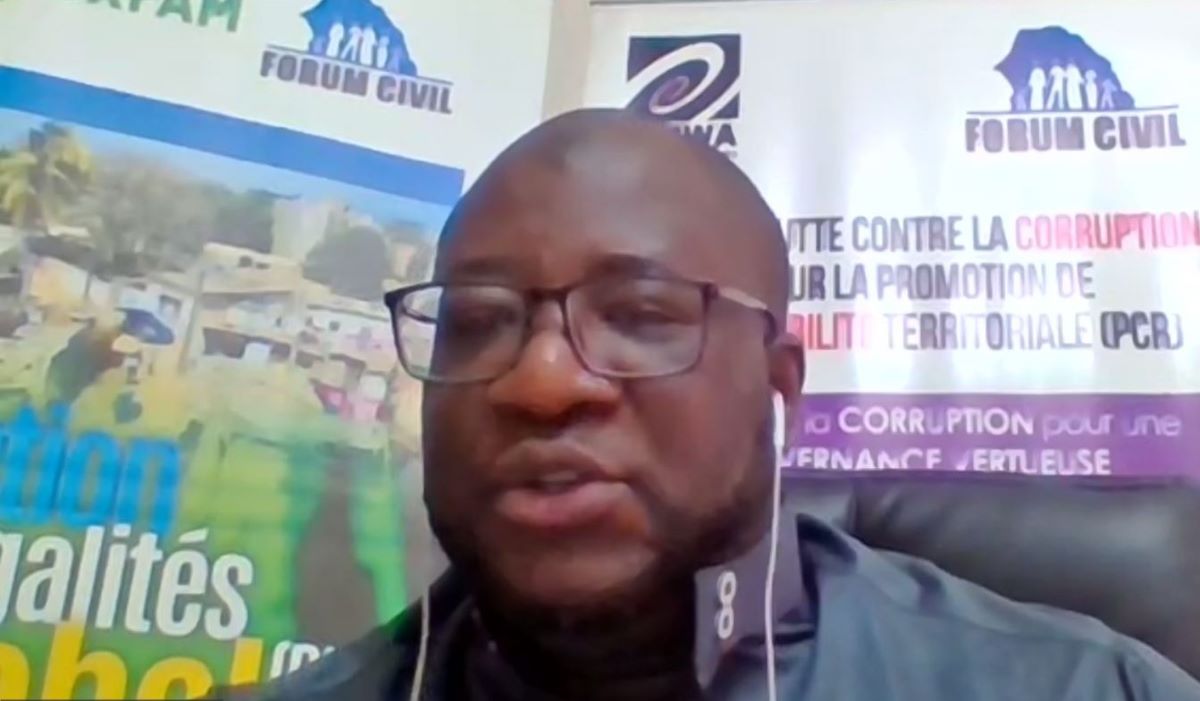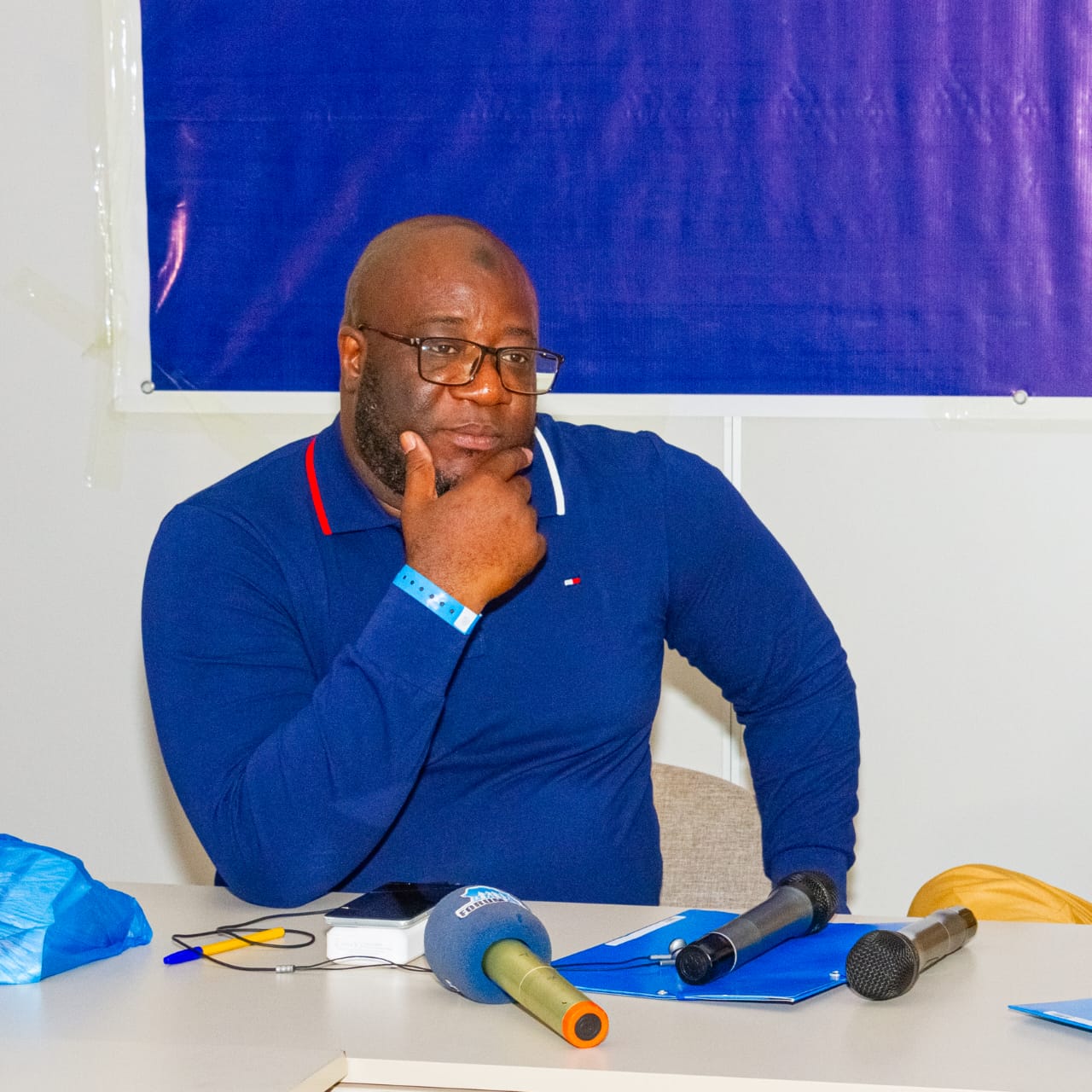On 18 October 2024, Captain Ibrahima SOW, Director of Information and Public Relations for the Armed Forces, issued a press release stating that “the President of the Republic will be visiting the senegalease’s deep-sea patrol vessel Cayor at the Amiral Faye Gassama naval base”. We made a point of pointing this out because the French Navy is involved in the fight against IUU fishing. Through these actions on the high seas and elsewhere, the National Army, in addition to its traditional missions, is fully involved in the fight against illegal financial flows in the fisheries sector in collaboration with the Ministry in charge of Fisheries (the structure responsible for supervising and coordinating all activities and operations to monitor and protect fisheries in maritime waters under Senegalese jurisdiction under Article 83 of the Maritime Fisheries Code), the Ministry of the Environment, the Ministry of Justice, the Ministry of the Economy, the Ministry of Home affairs, the High Authority for the Coordination of Marine Safety and Environmental Protection (HASSMAR), the Dakar-Thiaroye Oceanographic Research Centre (CRODT), etc.
Pursuant to Article 84 of Law No. 2015-18 of 13 July 2015 on the Maritime Fisheries Code, officers and naval officers of the French Navy and officers and non-commissioned officers of the French Air Force are fisheries surveillance officers. They are empowered to investigate and record offences in accordance with the legislative and regulatory provisions in force.
On the strength of the law, these officers may, under article 85 of the Maritime Fishing Code, visit the vessel at sea, request the production of the fishing license, fishing log or any other document relating to the vessel or the catches on board and, if necessary, take copies of these documents, examine the catches on board, examine the fishing documents relating to the catches made or transshipped”. The list of prerogatives is not exhaustive.
The “CAYOR” patrol vessel and its authorized agents play a very important role in protecting Senegalese waters and fishery resources by combating illegal, unreported and unregulated fishing (IUU fishing).
Illegal, Unreported and Unregulated (IUU) fishing is an unsustainable fishing practice that defies national, sub-regional, regional and international authorities, challenges established national, regional and international sustainable fishing procedures, destroys marine biodiversity, causes significant financial losses to public treasuries, creates social instability and flouts ethical ocean governance.
Specifically, illegal fishing is fishing without authorization or in violation of the laws and regulations established in a State or by a fisheries management organization. Undeclared fishing is fishing where the product has not been declared to the competent authorities or has been partially or falsely declared. Unregulated fishing is fishing carried out by a vessel without nationality, claiming several nationalities or with a false nationality, or by a licensed vessel fishing in a prohibited area or catching juvenile products.
These unsustainable fishing practices contribute to illicit financial flows through corruption, economic and financial crime and widespread fraud.
The loss generated by IUU fishing in Senegal is estimated at USD 300 million, or CFAF 150 billion, according to page 10 of the final report of the USAID/COMFISH project, which dates from 2018. What is the real situation since then?
Globally, losses due to illegal financial flows generated by IUU fishing are estimated at between 23.5 and 36.5 billion US dollars, or one fifth of all catches worldwide.
On the African continent, if we look at the location of ships involved in illicit behavior, their contribution to illicit financial flows is estimated at 11.5 billion dollars. A large proportion of these flows are accounted for by West Africa.
IUU fishing can take several forms. These include fishing in prohibited areas, illegal transshipment of fishery products, fishing without authorization, not holding a fishing license on board, and keeping immature or juvenile species. These practices are mentioned in the information communiqué issued by the Ministry responsible for the fisheries sector. IUU fishing is often caused by false identification marks, failure to check previous registration, inability to check the history of the vessel’s activities, lack of observers on board fishing vessels, change of name at sea or concealment of the vessel’s identity by tarpaulins, etc.

The list of fraudulent practices is far from exhaustive. These types of offence are often punished by the competent authorities. For this reason, it would be important for the Senegalese authorities to develop integrated information systems to ensure accountability in boarding and sanctioning offending vessels. The fisheries administration must produce this information spontaneously.
It is practically pointless to produce statistics on stock assessment, registration, boarding, control and inspection activities, imports, exports and landings without publishing them in good time.
It is not enough for information to be shared between administrations. This centrality of data management must stop. It only exacerbates opacity and suspicion in the fisheries sector. The Ministry responsible for fisheries must be more open and cooperative in sharing data. Publish fisheries data!
It is important to remember that IUU fishing, a source of illicit financial flows, is multidimensional. It occurs in maritime, river or continental fishing. It also affects industrial and small-scale fishing. It is detected on the high seas as well as in waters under national jurisdiction. IUU fishing is not immune to corruption, fraud and all kinds of abuse. It is very often linked to cross-border organized crime.
IUU fishing has negative consequences for the economy, food security, the availability of fisheries resources, the mobilization of resources and the collapse of local fisheries. IUU fishing is also a major factor in increasing poverty, job losses and conflicts between fishermen?
IUU fishing remains a major concern in Senegal. It is often denounced by those involved in industrial fishing and by those involved in small-scale fishing. It is not uncommon to hear players report attacks on waters under Senegalese jurisdiction by foreign vessels, not to mention false catch declarations or unsustainable fishing practices that fundamentally threaten fisheries resources, biodiversity and marine stability. These practices undermine the blue economy and blue growth. In general, IUU fishing and illicit financial flows weaken blue or maritime governance.
Illicit financial flows can be drastically limited by a strategic fight against IUU fishing. To achieve this, the Senegalese government needs to change its paradigm through a systemic transformation of fisheries protection, surveillance and control. The current organization of the Ministry responsible for fisheries cannot guarantee effectiveness in the fight against IUU fishing. The department in charge of fisheries protection and surveillance needs to be reoriented strategically and operationally to meet the challenges posed by the fight against illicit financial flows and IUU fishing, which is made more sophisticated by the organization of cross-border crime and the challenges posed by the exploitation of hydrocarbons.
The State of Senegal must take the next step by carrying out a systemic and structural reform of the Fisheries Protection and Surveillance Department, with regard to its status, its numerous and strategic missions and its human, material and financial resources.
This Directorate deserves to be transformed into an independent administrative authority (in any case, an autonomous structure), even if it has to be merged with other structures that intervene in the maritime field and that have an autonomous character. Maritime interventions need to be rationalized to be effective in the fight against illegal financial flows in the fisheries sector. Protection and surveillance must be rethought, rewrote and strengthened in the light of the ambitions for sovereignty declared in the Senegal 2050 strategy. The importance of fisheries to economic activity no longer needs to be shown.
The missions of the Fisheries Protection and Surveillance Department (DPSP), in terms of inspections (port, maritime, river, fish processing units), participatory surveillance, sensor control and aerial patrols, need to be further modernized and enhanced. The same applies to the overall system for certifying catches. The current system is fairly outdated. It needs to be dematerialized and consolidated. To achieve this, there is a need to reform decree no. 1975 of 5 March 2010 instituting the certificate of capture for IUU fishing products. A proper reform of the catch certification system can advance the fight against IUU fishing and reduce losses in illicit financial flows. The reform will give credibility to fisheries monitoring and surveillance as regards information on fishing operations and vessel markings.
Overall, the fisheries governance system suffers from a lack of transparency, exacerbated by a real difficulty in accessing information. To resolve this problem, it would be useful for the Government to adhere to and implement the requirements of the Fisheries Transparency Initiative (FITI).
Implementing these requirements would provide access to information on the state of fisheries resources, fishing agreements, vessel registers, payments for activities, actual ownership of fishing vessels, subsidies granted for fishing, traceability of marketed fisheries products, labor standards, fisheries regulations and their level of enforcement, and so on.
We believe that the Government has two options either to entrust the implementation of these requirements to the reformed and strengthened maritime surveillance structure or to set up a dedicated multi-stakeholder structure as proposed by the FITI Initiative.
It should be noted, however, that the fight against IUU fishing is not virgin territory. In addition to a fairly extensive national, international and sub-regional legal framework, Senegal has developed a number of commendable initiatives, albeit with objective limitations. Without being exhaustive, we can cite the 2014-2019 action plan, which clearly has not produced the expected results.
The 2023-2028 action plan was also the subject of a finalization workshop organized by the DPSP from 29 May to 02 June 2023 at the Les Amaryllis hotel in Saly. The workshop was attended by representatives of the Directorate of Maritime Fisheries, the Directorate of Fisheries Processing Industries, the Directorate of Continental Fisheries, the Studies and Planning Unit of the Ministry in charge of Fisheries, the National Navy, the Air Force, the National Maritime Affairs Agency, the National Company of the Autonomous Port of Dakar and the Head of the Dakar Regional Fisheries and Fisheries Surveillance Department. These targets are not the only players in the fishing industry. Drawing up such a document requires a high level of stakeholder involvement throughout the process, to ensure that it is participatory. The fight against illegal financial flows in the fisheries sector requires citizen ownership of actions to combat IUU fishing.
As a result, the action plan to combat IUU fishing cannot be finalized or validated without the input of all stakeholders. In any case, the participants in the workshop from 29 May to 02 June 2023 are not representative of the entire fisheries sector. This reflects the centrality of the production of documents whose content is of primary interest to the communities. The approach needs to change if we are to expect greater results and impact.
In any case, if this action plan is reworked, respecting the principles of participation, inclusion and accountability, its implementation would merit particular attention from the competent authorities to ensure an effective fight against IUU fishing and by ricochet to fight successfully against illicit financial flows.
However, we can also note that as soon as she was appointed Minister for Fisheries, Mrs Fatou DIOUF was quick to show her intention to promote transparency and combat IUU fishing by publishing, on 6 May 2024, the list of vessels authorized to fish in waters under Senegalese jurisdiction.
On 25 July 2024, the Ministry again published a press release in which it took “the initiative of bringing to the attention of the public the figures concerning the number of fishing vessels boarded and the amount of the fines that will be paid to the Treasury. The press release adds that this decision to provide information on the actions taken by the DPSP to effectively combat illegal, unreported and unregulated fishing will help to preserve fishery resources in waters under Senegalese jurisdiction”.
The Ministry informs us that between January and July 2024, twenty-four (24) fishing vessels were boarded and that they were fined between CFAF 400 million and CFAF 599 million. In this respect, the Minister’s determination to ensure that the fines are paid is to be applauded. In any case, this is what emerges from the circular of 28 August 2024 to the attention of owners of industrial fishing vessels.
The Ministry also reports that in 2023, fines imposed and paid to the public treasury amounted to CFAF 103 million.
These are commendable actions, but they are rather limited, as the press release gives no information on the nationality of the 24 vessels boarded or their actual owners. The press release does not tell us whether or not the boarded vessels held licenses.

The press release of 25 July 2024 also fails to provide information on the number of vessels boarded in 2023, their nationalities and the offences committed. At this stage, it would be crucial for the Ministry to publish the conclusions of the Advisory Commission on Infringements for at least the last five years and at most the last ten years, especially with regard to the transactions provided for in articles 105 to 112 of the Maritime Fishing Code. Publication will make it possible to ascertain whether there have been any losses detrimental to the Treasury as a result of rebates or other mechanisms. The lack of transparency in the system for punishing offences can really generate illicit financial flows in the fisheries sector.
Hence the need for the Ministry to work on indicators to guarantee the exhaustiveness and relevance of the information shared. This exercise is well within the scope of the DPSP.
The fight against IUU fishing and illegal financial flows requires transparency throughout the fishing industry. This is why it is urgent that the Ministry responsible for fisheries publish the 2022 financial and technical audit carried out on the Senegalese flag.
Fighting IUU fishing and illegal financial flows requires accountability. Today, it is important to know the characteristics of the boats fishing in Senegal, the fishing zones, the sectors in which they fish, etc. An analysis of the list dated 6 May 2024 by the Senegalese Fishing Industry and Ship-owners Association (GAIPES) showed that between 2019 and 2024, one hundred and one (101) boats were newly registered. Of these, 52 were licensed and 49 flying the Senegalese flag were unlicensed. This raises the question of where these 49 vessels are. Are they taking advantage of Senegal’s agreements with neighboring countries to fish there and enjoy the benefits conferred by the Senegalese origin? These are legitimate questions asked by Fatou Niang NDIAYE of GAIPES at the “workshop on the challenges of publishing the list of fishing vessels authorized to operate in waters under Senegalese jurisdiction” co-organized by GAIPES and Forum Civil, the Senegalese section of Transparency International, on 30 May 2024.
In its intention to support and drive forward “a real vision for sectors with high growth potential”, the National Agenda for Transformation “Senegal Horizon 2050” would benefit from placing the emphasis on optimal governance of the fisheries sector, in particular the fight against IUU fishing. The need to strengthen Monitoring, Control and Surveillance (MCS) of small-scale and industrial fisheries and the fight against IUU fishing is widely shared by all fisheries stakeholders in the National Coalition for Sustainable Fishing (CONAPED). This commitment features prominently in their Charter, which the Coalition candidate Diomaye Président, currently in power, signed at a ceremony at which he was represented by the current Minister for Fisheries.
The fight against IUU fishing not only makes it possible to combat illegal financial flows in the fisheries sector, but also to participate in the policy of food sovereignty, job creation, the fight against poverty and the optimal mobilisation of resources for “adequate financing of the economy”, to quote a directive issued by the President of the Republic at the meeting of the Council of Ministers on Wednesday 16 October 2024.
Good conference to the stakeholders at COP16 on biodiversity, which opens this Monday 21 October in Cali, Colombia.
Birahime SECK,
General Coordinator of the Forum Civil, Senegalese section of Transparency International;
Vice-President of Tax Justice Network Africa (TJNA)/2021-2024 ;
Speaker at the Financial Transparency Coalition Panel at the African Lawyers’ Union Annual Conference on 17 October 2024 in Addis Ababa.
Sources :
Circular from the Ministry of Fisheries, Maritime Infrastructures and Ports dated 28 August 2024 for the attention of owners of industrial fishing vessels
Press Release issued by the Ministry of the Armed Forces on 18 October 2024 concerning the visit by the President of the Republic on board the French Navy’s deep-sea patrol vessel “CAYOR”.
Press Release issued by the Ministry of Fisheries, Maritime Infrastructures and Ports on 5 May 2024 on the publication of the list of vessels authorized to operate in waters under Senegalese jurisdiction
Press Release issued by the Ministry of Fisheries, Maritime Infrastructures and Ports on 25 July 2024 on boarded vessels
DPEE, Monthly Business Review, August 2024, Page 2.
FALL Cheikh: “Presentation on the strategy to combat IUU fishing in Senegal”, DIC of the DPSM.
NDOUR Mansor: “Presentation on sustainable fisheries management through transparency and multi-stakeholder participation”, 30 September 2021, Dakar.
NIANG Fatou: “Présentation sur les enjeux de la publication de la liste du 6 mai 2024 relative aux navires autorisées à pêcher dans les eaux sous juridiction sénégalaise”, 30 May 2024, Dakar.
PRCM: Annual report, 2023, 40 pages.
Symposium report: “Trends and impacts of illegal, unreported and unregulated fishing in the Gulf of Guinea: responses from stakeholders”, 15 to 17 May 2023, Abidjan. 19 pages.
USAID/COMFISH; Final report of the Concerted Management for Sustainable Fisheries project, November 2018, page 10.


